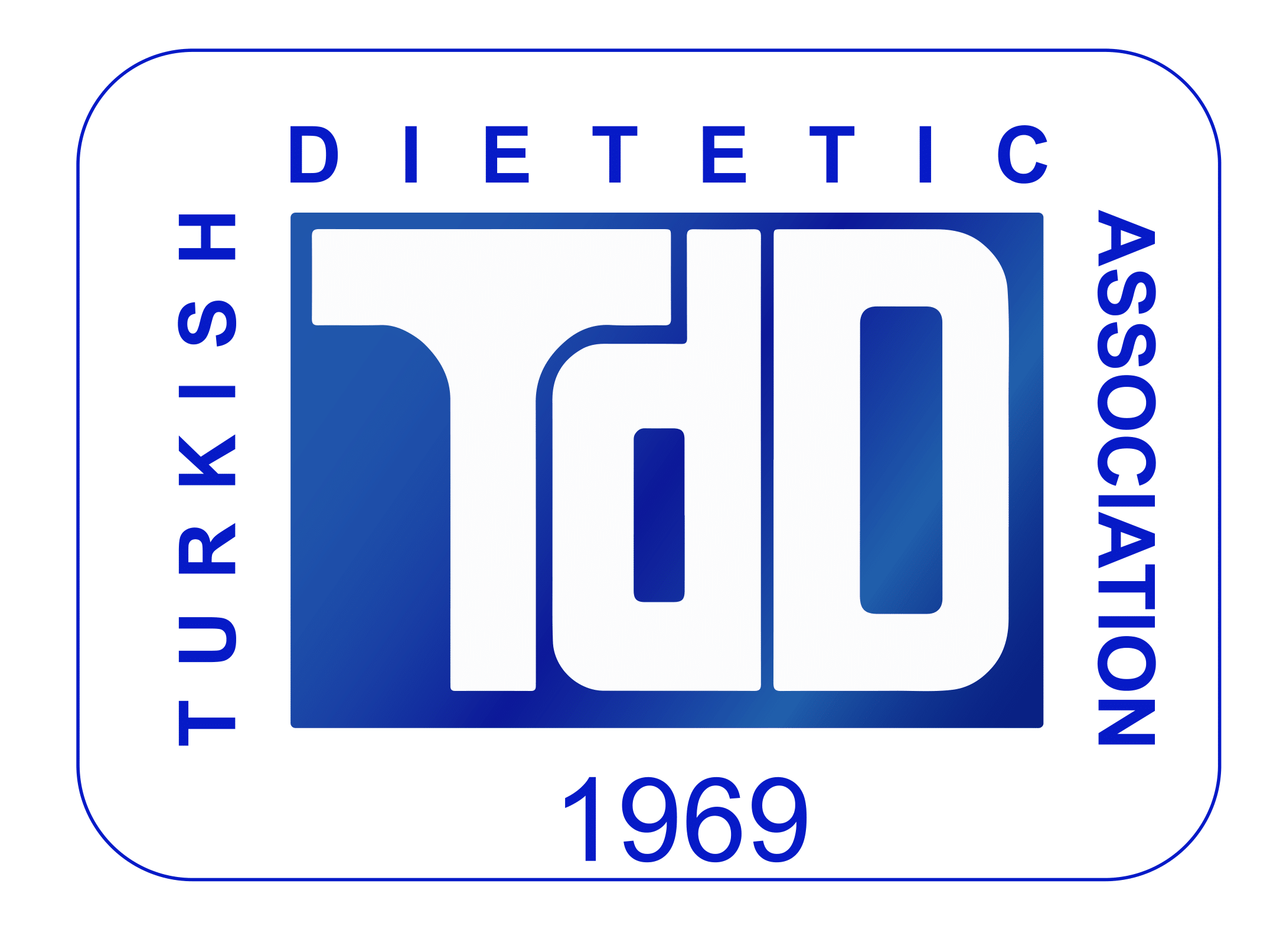Effects of Energy and Nutrients Intakes on Insulin Resistance and Inflammation Markers
Keywords:
Insulin resistance, inflammation, nutrientsAbstract
Aim: This study aimed to determine the relationship between energy and nutrients intake of patients with insulin resistance parameters and inflammation markers. Subjects and Method: This study was conducted with participation of 53 female patients aged between 30 and 50 years, were diagnosed with insulin resistance for the first time, had a body mass index of 30-40 kg/m2, had no disease other than hyperlipidemia, in order to determine the presence of inflammation in the patients with insulin resistance. Three-day (including one weekend day) food consumption records of the patientss has been collected. Fasting and postprandial glucose, fasting and postprandial insulin, total cholesterol, triglycerides, HDL-cholesterol, LDL-cholesterol, VLDL-cholesterol values of patients were examined, and HOMA-IR values were calculated. Also CRP, TNF-α, IL-1β, and IL-6 levels of patients were examined. Results: The ratio of energy from carbohydrates (46.5%±10.4) and the ratio of polyunsaturated fatty acids (8.9%±4.4) and thiamin (0.6±0.2 mg), niacin (0.9±0.4 mg), folic acid (238.8±84.6 μg), calcium (577.9±263.3 mg), magnesium (222.1±94.6 mg) and zinc (8.1±3.6 mg) intake of patients were below the recommended levels. The ratio of fat from energy (39.3%±8.9), saturated fatty acids (15.1%±5.9) and monounsaturated fatty acids (13.4%±4.8), saturated fatty acids (24.9±10.9 g), vitamin C (107.0±75.6 mg), vitamin A (1098.9±1041.1 μg) and phosphorus (933.1±410.2 mg) intakes were above the recommended levels. There was a positive weak correlation between carbohydrate intake of patients and TNF-α (p=0.043; r=0.416) and between the ratio of carbohydrate and CRP (p=0.007; r=0.366) and TNF-α (p=0.033; r=0.437). There was a negative weak correlation between the ratio of fat percentage and CRP (p=0.018; r=-0.325). There was a negative medium correlation between the ratio of fat percentage and TNF-α (p=0.000; r=-0.665). There was a positive weak correlation between thiamin (p=0.014; r=0.493), potassium (p=0.030; r=0.443) and phosphorus (p=0.027; r=0.451) intakes and TNF-α. In addition, there was a positive medium correlation between iron intake and TNF-α (p=0.004; r=0.563). Conclusion: The relationships between energy and nutrients intake of patients with insulin resistance and insulin resistance and inflammation markers could not be clearly established, may be depending on small sample size. Further research is needed in this regard.

